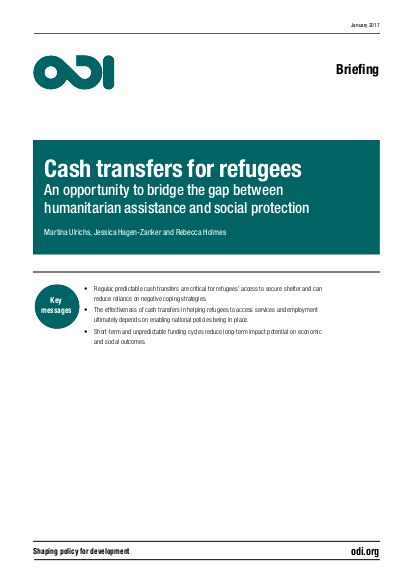
The world is now experiencing the biggest refugee crisis since the second world war. Many of the countries with the highest outflow of refugees are facing ongoing conflicts that are unlikely to end anytime soon. In fact, most displacement crises are protracted, with 80% lasting ten years or more.
The majority of humanitarian aid provides only short-term isolated support to the long-term displaced. One such mechanism of support is cash transfers. While the impact of cash transfers on access to services and integration of displaced populations is understudied, evaluations have revealed their effectiveness in allowing refugees the flexibility to decide how to use money for their most urgent needs, keeping their children in school, and accessing and reducing social tensions.
Based on research conducted into the UNHCR cash transfer in Jordan, this briefing paper offers three policy implications which show how social protection can be used to support refugees. Key messages include:
- Regular, predictable cash transfers are critical for refugees’ access to secure shelter and can reduce reliance on negative coping strategies.
- The effectiveness of cash transfers in helping refugees to access services and employment ultimately depends on enabling national policies being in place.
- Short-term and unpredictable funding cycles reduce long-term impact potential on economic and social outcomes.